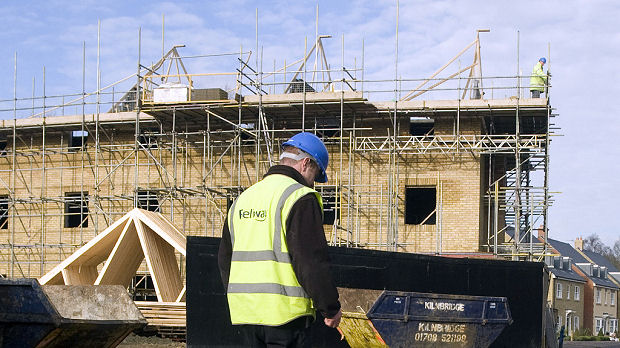No U-turn on planning reform, says minister
Amid fears that planning changes could end up “concreting the countryside”, the planning minister tells Channel 4 News he will work with countryside campaigners, but says there will be no U-turn.

The Government wants to change planning policy to tell planning committees to say a default “yes” to development to solve housing crisis and boost economy.
Critics have raised concerns that the draft National Planning Policy Framework will lead to a return to damaging development, with thousands signing a petition to stop the changes.
But ministers have accused critics of misleading people and playing on people’s concerns about the green belt.
‘Absolute nonsense’
Stuart Robinson, head of planning at CB Richard Ellis, told Channel 4 News that the changes would help to simplify the system and that concerns had been “severely overdramatised”.
The changes are just simplifying a vast amount of policies into a much more usable and manageable system. Stuart Robinson, head of planning at CB Richard Ellis
“It’s absolute nonsense. There’ll be no stripping away of green belts.
“The changes are just simplifying a vast amount of policies into a much more usable and manageable system that still reflects the necessary restrictions that are needed in planning.”
He told Channel 4 News that the role of the community would be “enhanced significantly” and he rejected the idea that it would see a surge in developments.
“There is the presumption that it will lead to more developments, but it has safeguards. And it needs to pass a number of tests relating to sustainability.”
Greenbelt concerns
But Bill Esterson, MP for the Sefton Central constituency in Merseyside where the greenbelt is already under threat, says people should be allowed to fight for the places they love.
We need to look after people who need houses – but not by concreting over countryside. Bill Esterson, Sefton Central MP
Mr Esterson says many locals are worried that land will be destroyed to create new housing developments.
“Of course we do need to look after people who need houses – but not by concreting over countryside.” he said.
‘Confusion and anxiety’
Former presidents of the Royal Town Planning Institute (RTPI) say the proposed changes have caused confusion and anxiety.
In a letter to the Telegraph, they wrote: “The debate about planning reform highlights the importance of planning for growth, building communities and the conservation of cherished spaces. But it has descended into open hostility on all sides, with each party interpreting the policy in different ways.
“The Government wants to bring in a new system almost overnight, reflecting the urgency of delivering localism and stimulating housing and economic growth.
“While we recognise this urgency and support the Government’s overall objectives, the unintended consequences of this haste are greater confusion, uncertainty for the development industry and anxiety for communities.”
In a debate on Channel 4 News featuring Planning Minister Greg Clarke and Ben Cowell of the National Trust, Mr Clarke said he did not include Ben Cowell in his description of some opponents to his planning proposals as “selfish nihilists”.
Ben Cowell said the National Trust was entirely in favour of development – provided it was done in the right way. “We should be in favour of good development, development that meets the needs of everyone… That means a system that guarantees good development – not the proposed system the Government have produced”.
Greg Clarke replied that if we continued to build at the current rate, it was a recipe for poverty and homelessness. He said the way that planning has developed over the last 10 years means it has become “an industry all of its own”. He noted that it can sometimes take as long as two years to secure planning permission for developments.
“Like Ben, I want the buildings that we build in the future to enhance the environment,” Mr Clarke said. He wanted to achieve better standards of development, with the consent of local communities, rather than having development forced on local communities.
Ben Cowell rejected the minister’s words. “It absolutely has not convinced me. The planning system is not holding back the building of new homes. There is permission already there for 250,000 homes and more. There are also 750,000 empty homes across this country.”
Mr Cowell called for a “brownfield first” approach to development, and said the present system should not be thrown out of the window. “The system is not holding things back – the economy is currently holding back the building of new houses.”
The Planning Minister concluded by pointing out that “if you look closely at the framework, paragraph 165, it states very clearly that the land that should be brought into use is that of the lowest environmental value first,” and he said that was a precise formulation of the “brownfield first” concept.